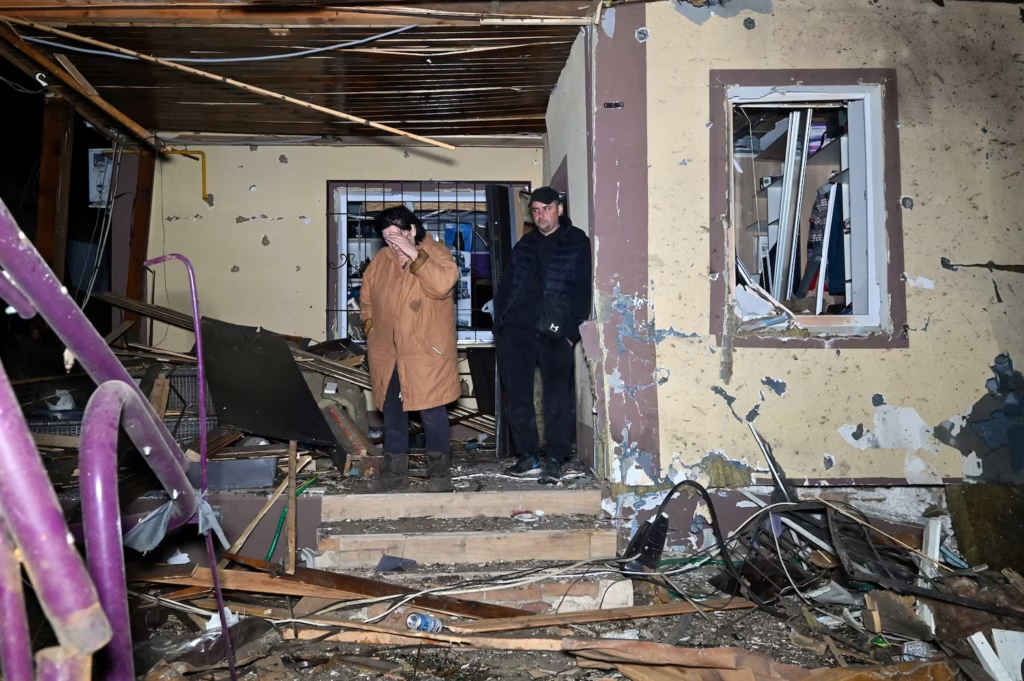KYIV, Ukraine — A wave of Russian drone strikes tore through the northeastern Ukrainian city of Kharkiv late Friday, injuring nearly 50 civilians—including an 11-year-old child—and igniting fires in residential areas just hours ahead of Moscow’s proposed ceasefire, Ukrainian officials reported.

Kharkiv regional governor Oleh Syniehubov described the overnight assault as a “massive attack” in a Telegram post, stating that drones struck four districts across the city. The barrage triggered multiple fires and caused significant destruction to homes, buildings, and vehicles.
Kharkiv Mayor Ihor Terekhov confirmed that 12 separate impact zones were recorded across the four districts. Emergency services and firefighters scrambled overnight to extinguish flames, while medical crews tended to dozens of injured residents. As of Saturday morning, eight people remained hospitalized in moderate condition.
The attack came shortly before Russia’s self-declared three-day ceasefire tied to its annual Victory Day celebrations marking the end of World War II. However, Ukraine’s leadership dismissed the ceasefire as disingenuous, arguing that continued assaults prove it to be little more than a propaganda gesture.
“Russia attacks when people are in their homes, putting their children to bed,” President Volodymyr Zelenskyy said Saturday in a statement condemning the strikes. “These drones didn’t target military sites—they hit homes.”
Just hours before the Kharkiv strikes, Russian forces also launched a drone attack on the southern Ukrainian city of Zaporizhzhia, injuring 29 people. And earlier this week, a similar assault on Kharkiv left 45 wounded—including two children—while a separate strike in Dnipro killed one civilian.
Zelenskyy called for heightened international pressure on Moscow, criticizing the global response as insufficient and demanding concrete sanctions instead of verbal condemnation.
“Russian drones continue flying over Ukrainian skies all morning,” he wrote on Telegram. “And this happens every single day. That’s why pressure on Russia is needed—strong, additional sanctions that actually work. Not just words or attempts at persuasion—only pressure can force Russia to agree to a ceasefire and end the war.”
Meanwhile, in Moscow, Kremlin spokesperson Dmitry Peskov signaled that Russia remains reluctant to embrace any U.S.-brokered peace initiatives without conditions. Speaking Wednesday, Peskov said President Vladimir Putin was open to the idea of a ceasefire but insisted that “a whole series of nuances” must be resolved before any agreement could be reached, according to the state-run Tass news agency.
As Ukraine endures its third year under relentless Russian bombardment, civilian casualties from drone and missile strikes continue to mount, even as diplomatic channels struggle to produce lasting solutions. The Ukrainian government remains adamant that only firm and escalating international action can compel Russia to halt its campaign.



